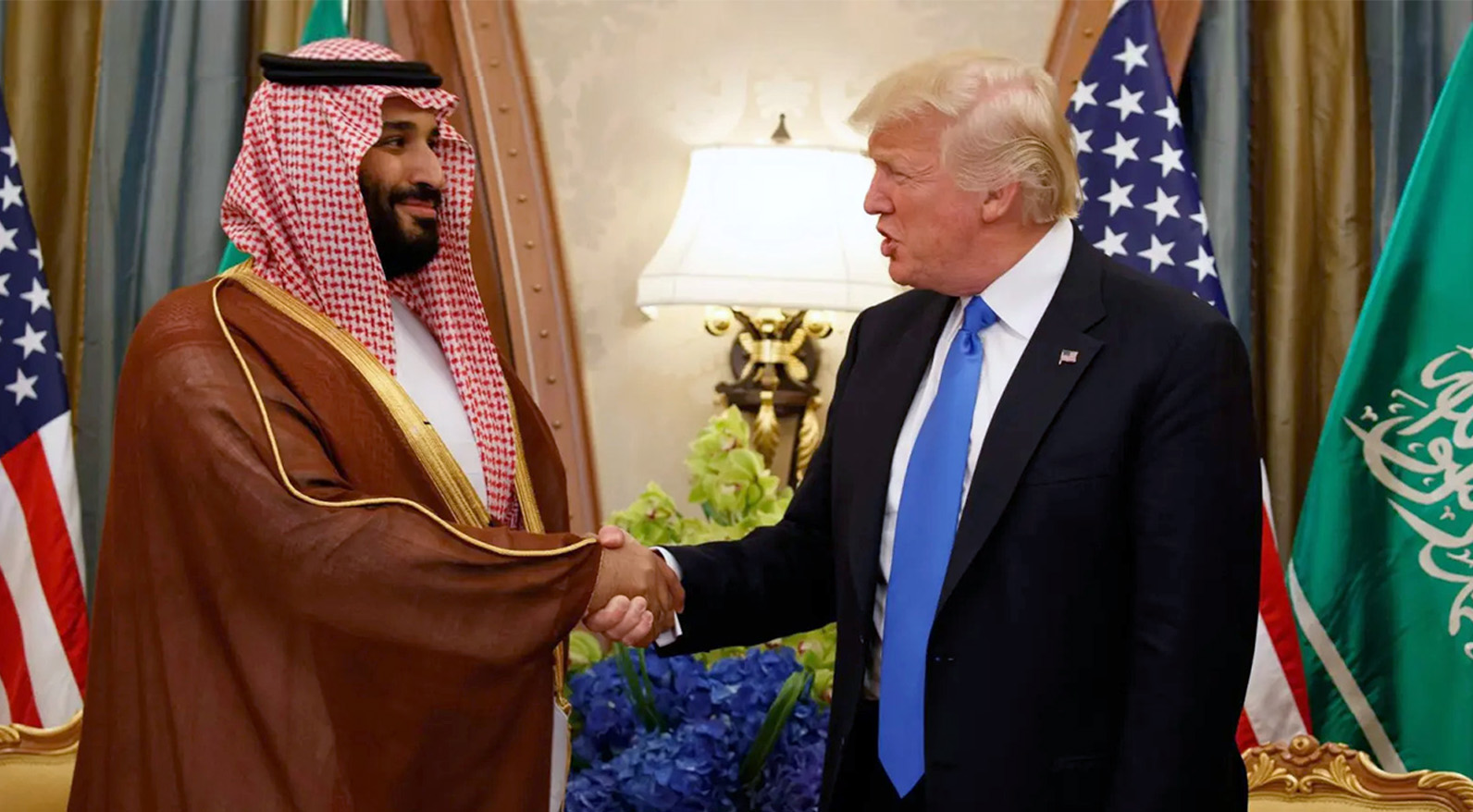Riyadh First: Trump Signals Gulf Focus?
“I am going to Saudi Arabia,” President Trump said. “Last time I went to Saudi Arabia. They put up 450 billion dollars. This time I said I will go if you put up a trillion dollars to American companies… They agreed to do that. So I am gonna be going there.”

By Kamaran Aziz
ERBIL (Kurdistan24) — U.S. President Donald Trump is preparing to travel to Saudi Arabia in mid-May, marking his first foreign visit since returning to office. According to a report by Axios, the planned trip underscores the Trump administration's strategic focus on Gulf partnerships, particularly in the spheres of economic cooperation, regional security, and Middle East diplomacy.
Multiple U.S. officials and sources familiar with the plans confirmed to Axios that discussions between senior American and Saudi officials have been underway for several weeks, including meetings held on the sidelines of recent Ukraine war talks hosted by Riyadh. While an initial date for the visit was floated for April 28, it was later postponed, with mid-May now seen as the tentative timeframe.
Trump himself hinted at the trip during a March 6 exchange with reporters in the Oval Office. “I am going to Saudi Arabia,” he said. “Last time I went to Saudi Arabia. They put up 450 billion dollars. This time I said I will go if you put up a trillion dollars to American companies… They agreed to do that. So I am gonna be going there.”
The visit is expected to revolve around foreign investments, fortifying economic ties with Gulf nations, and addressing conflicts across the Middle East. A White House official confirmed to Axios that international travel opportunities for the president are being reviewed, though emphasized that no official itinerary has been finalized.
“Talks will focus on discussing foreign investments, strengthening relationships with Gulf nations and ending conflict in the Middle East,” the official said.
Trump’s decision to return to Riyadh for his first overseas trip echoes a similar move made during his first term, when he selected Saudi Arabia as his inaugural foreign destination in May 2017. That trip resulted in major arms deals and saw the convening of a summit with Arab leaders aimed at countering extremism and fostering U.S.-Arab cooperation.
This time, the stakes are similarly high. According to Axios, efforts to resume a ceasefire in Gaza and secure the release of hostages held by Hamas are central to ongoing diplomatic talks. However, prospects for a long-anticipated normalization agreement between Israel and Saudi Arabia remain stalled. U.S. and Israeli officials say the process has been placed on the back burner, largely due to Riyadh’s insistence on a time-bound and irreversible path to Palestinian statehood—something the current Israeli government is unwilling to concede.
Israeli officials told Axios that the White House has not, as of yet, broached the possibility of Trump extending his trip to include a stop in Israel. Nor is it clear whether the president will replicate the format of his 2017 visit by convening a regional summit of Arab leaders.
Axios reported that Saudi Arabia prefers the visit to take place after a ceasefire between Russia and Ukraine is achieved.
Riyadh has emerged as an active mediator in that conflict, hosting several rounds of indirect negotiations and engaging with both Russian and Western officials.
The broader geopolitical significance of the trip cannot be understated. The Trump administration has prioritized resetting and enhancing ties with Gulf monarchies, especially Saudi Arabia, as part of its broader regional strategy. With American defense industry contracts, energy cooperation, and joint mediation efforts on the table, the upcoming visit is expected to deepen an already evolving partnership.
The White House and the Saudi embassy in Washington have so far declined to comment publicly on the visit. Still, for observers in the region and beyond, Trump’s return to Riyadh serves as a potent symbol of where his foreign policy priorities lie—and what role Saudi Arabia is likely to play in the next chapter of U.S. engagement with the Middle East.